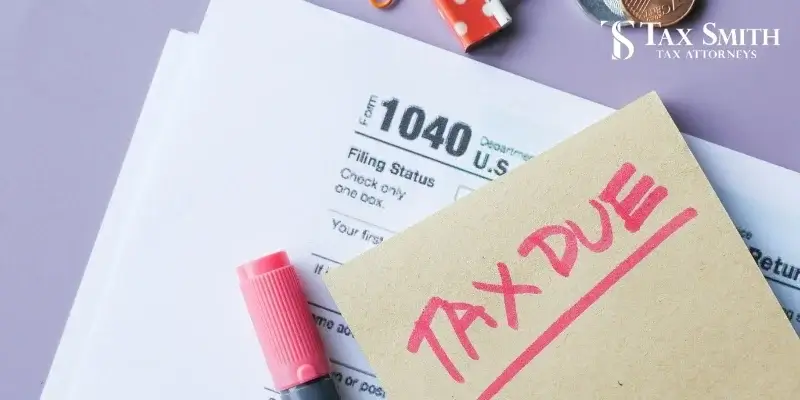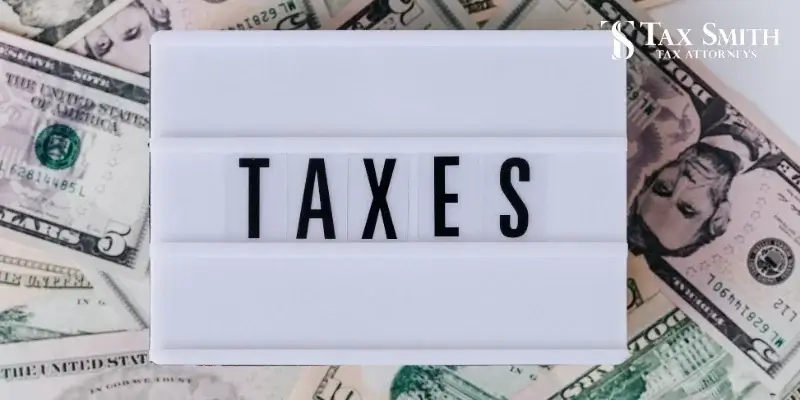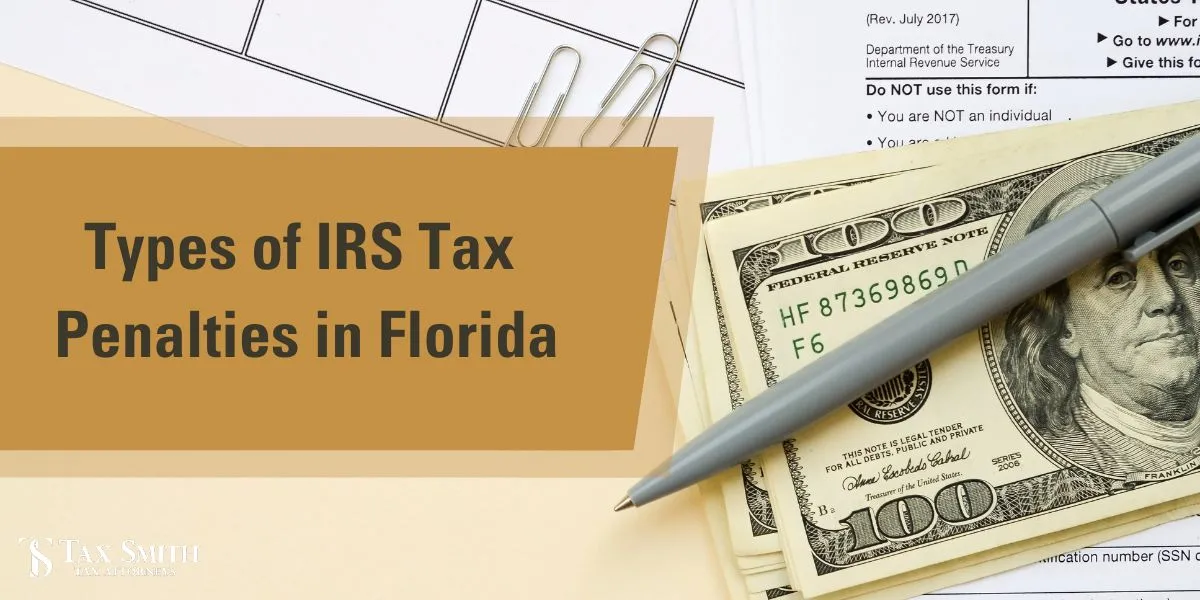1548 The Greens Way – Ste. 4 Jacksonville Beach FL 32250
Types of IRS Tax Penalties in Florida
The 2024 deadline for filing your tax return has come and gone. If you are a taxpayer who did not file on time or did not fully pay the amount you owed, you may face penalties as well as interest on those penalties. This can be very financially stressful, but it’s important to address these penalties as soon as possible. Ignoring potential issues can only cause the penalties to increase. It can be helpful to know the types of IRS tax penalties in Florida and what you can do to lessen the financial impact you may be facing.
Types of IRS Penalties

It can be useful to understand the causes of IRS tax penalties in Florida. Some of the penalties the IRS assigns include:
- Information Return: This penalty applies when you don’t file information returns or fail to provide payee statements that are accurate and submitted by the due date. There are individual penalties charged for each statement or information return that is not provided. In 2024, if one of these items is up to 30 days late, the charge is $60.The amount of the penalty increases with time, reaching up to $630 for intentional disregard, for which there is no maximum penalty. These penalties also carry a monthly interest.
- Failure to File: Failure to file penalties apply when you do not file your tax return by the specified date. The value of this penalty is determined based on the amount of unpaid taxes that were owed on the initial due date and how late the tax return is filed. The penalty is 5% of the unpaid taxes for each month or partial month the return is late, and it will not exceed 25%. Unpaid taxes are determined by subtracting withholding amounts from the tax shown on the return.
- Failure to Pay: This penalty occurs when you do not pay the owed tax by the due date. This penalty is a percentage of the unpaid taxes, like the failure to file penalty. This percentage will not exceed 25%. If you are penalized for both failure to pay and failure to file, the failure to file is lowered by the amount of the failure to pay penalty.
These penalties are calculated differently depending on whether you failed to pay the amount listed as owed on your tax return or failed to pay a tax that you did not report on your tax return. - Accuracy-Related: Accuracy penalties apply when you underpay your tax due to not reporting all your income or claiming deductions that you don’t qualify for. Individual taxpayers typically receive either a penalty for negligence or disregard or a penalty for a substantial understatement of income tax.
The error qualifies as a substantial understatement if the paid amount is 10% or $5,000 less than you owe, whichever amount is greater. The penalty for both accuracy-related errors is 20% of the underpayment of tax. - Erroneous Refund or Credit Claim: This penalty applies when you request a refund or credit which is excessive without reasonable cause. The amount is considered excessive when it is greater than any allowed amount for a taxable year. The penalty is 20% of the amount requested.
- Failure to Deposit: This penalty applies to employers and occurs when you fail to pay employment taxes. The error may be that the payment was late, the amount was not the correct amount, or the payment was not made the correct way. The penalty is 2%- 10% of the taxes that were not paid, depending on the number of business days the payment is late.
- Tax Preparer: These penalties apply to professionals or any person paid to prepare tax returns if they engage in misconduct and/or break tax laws.
- Dishonored Checks: If a check or other payment form is bounced or dishonored, meaning there was not enough money to cover the payment, there is a penalty of $25 or less for payments under $1,250 and a penalty of 2% for payments over $1,250.
Other IRS penalties include:
- Civil Fraud or Filing False Returns
- Corporate Underpayment of Estimated Tax
- Individual Underpayment of Estimated Tax
- International Information Reporting
If you are a taxpayer who has been issued a notice of a penalty, it is important to follow the instructions on the notice and learn your options for handling the penalty. In some cases, there is reason to dispute the penalty due to inaccurate information or request penalty abatement. A skilled tax attorney can help you review your options to settle tax debt, penalties, and interest.

FAQs About Types of IRS Tax Penalties in Florida
What Kind of Penalties Does the IRS Charge?
Some of the common IRS penalties include:
- Failure to file penalty
- Failure to pay penalty
- Information return penalty
- Accuracy-related penalties
- Failure to deposit
- Dishonored checks
- Underpayment of estimated tax for individuals and businesses penalty
- Inaccurate claim for refund or credit penalty
These penalties typically refer to inaccurate information, late filing, or incorrect deductions.
What Is a 20% Penalty from the IRS?
The accuracy-related penalties are 20% of the amount a taxpayer underpays. There are two types of accuracy-related penalties: negligence and disregard of the rules and regulations and substantial understatement. The difference between the amount a taxpayer pays and the amount they actually owe is penalized at a flat 20% for both types of penalties.
What Is a 75% IRS Penalty?
The 75% IRS penalty is the penalty for underpaying on a tax return because of intentional tax evasion or tax fraud, also called civil fraud. The 75% penalty applies to the difference between the amount you paid on a tax return and the amount you should have paid. Fraud or evasion could also result in criminal penalties.
What Triggers an Underpayment Penalty from the IRS?
An underpayment penalty from the IRS is triggered when a taxpayer fails to pay the total tax payment they owe, either in an estimated payment or on their yearly tax return. The penalty will be a percentage of the unpaid taxes. Individuals can avoid the penalty for underpaid estimated taxes if they owe less than $1,000 on their tax return or if they paid a certain percentage of the tax this year or the prior year.

Tax Smith Tax Attorneys: Helping You Navigate Penalties
You have options if you are facing IRS penalties, but you need to act quickly. The IRS is more likely to be lenient the sooner you work to correct mistakes and address unpaid taxes and penalties. A skilled attorney from Tax Smith Tax Attorneys can help you determine if you qualify for penalty abatement or other relief options. Contact our firm today.
Locations We Serve
- Alabama
- Arizona
- California
- Colorado
- Connecticut
- Delaware
- District of Columbia
- Florida – HQ
- Georgia
- Idaho
- Illinois
- Indiana
REQUEST A CONSULTATION
Please fill out the Contact Request Form and a Tax Attorney/Paralegal will call you
to discuss legal representation or to schedule your free initial consultation




